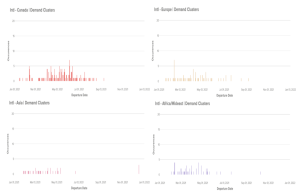Hidden City Ticketing and Skiplagging: Risks, Ethics, and Savings

Let’s be honest—airfare prices can feel like a rollercoaster. One minute you’re booking a flight, the next you’re staring at a price that makes your wallet wince. That’s where hidden city ticketing and skiplagging come in. Clever? Sure. Controversial? Absolutely. Let’s break it down.
What Is Hidden City Ticketing?
Hidden city ticketing (or skiplagging) is when you book a flight with a layover in your actual destination—then bail before the connecting leg. For example, say you want to fly to Chicago, but a direct flight costs $400. A flight to Milwaukee with a layover in Chicago? $250. You’d book the latter, hop off in Chicago, and… well, skip the rest.
Why Do Airlines Hate This?
Airlines really don’t like it. Their pricing models rely on demand for specific routes. A flight to a smaller city (like Milwaukee) might be cheaper than a direct one to a hub (like Chicago). Skiplagging throws a wrench in that system—and can even lead to empty seats on the second leg, messing with their logistics.
The Risks: What Could Go Wrong?
Sure, saving money sounds great—but here’s the catch. Skiplagging isn’t exactly risk-free. Here’s what could happen:
- Your return ticket gets canceled. Airlines often void the rest of your itinerary if you miss a leg. So if you skip the first connection, that return flight? Poof.
- Checked baggage? Gone. Your luggage goes to the final destination—not your hidden city. Oops.
- Banned by the airline. Repeat offenders might face penalties, like losing frequent flyer miles or even getting banned.
- Last-minute changes. Airlines sometimes reroute flights. Your layover city? Suddenly it’s not your layover anymore.
The Ethics: Is It Fair Game?
This is where things get murky. Some argue it’s a smart hack—like using a coupon. Others call it gaming the system. Here’s the ethical breakdown:
- Pro-skiplagging: Airlines use dynamic pricing, so why shouldn’t travelers exploit loopholes? It’s not illegal—just frowned upon.
- Anti-skiplagging: It violates airline contracts, and if everyone did it, fares could rise for everyone. Plus, it’s a bit… sneaky.
Honestly? It’s a gray area. You’re not breaking laws, but you’re bending rules.
How to Skiplag (If You Dare)
If you’re still tempted, here’s how to minimize risks:
- Never check bags. Carry-on only—unless you enjoy reuniting with your suitcase in another state.
- Book one-way tickets. Avoid the return-flight cancellation headache.
- Use incognito mode. Some sites track searches and adjust prices. Stay stealthy.
- Don’t overdo it. Airlines notice patterns. The occasional skip? Maybe fine. A habit? Risky.
Alternatives to Skiplagging
Not keen on the gamble? Try these legit money-savers instead:
| Strategy | How It Works |
| Flexible Dates | Flying mid-week or off-season can slash prices. |
| Budget Airlines | Spirit, Frontier, etc.—no frills, but cheaper. |
| Rewards Points | Credit card miles or airline loyalty programs add up. |
| Price Alerts | Tools like Google Flights notify you of drops. |
The Bottom Line
Skiplagging is like finding a shortcut—thrilling, but with potholes. It can save you money, but the trade-offs? Lost luggage, canceled flights, and airline side-eye. Whether it’s worth it depends on your appetite for risk—and how much you enjoy outsmarting the system.
At the end of the day, airfare pricing feels rigged. But maybe—just maybe—the real win is knowing the game, even if you don’t always play it.

